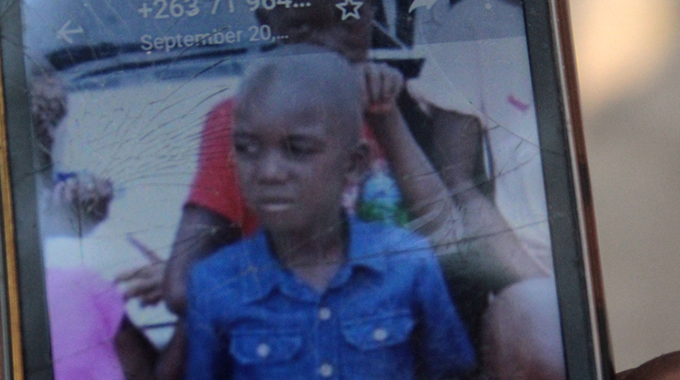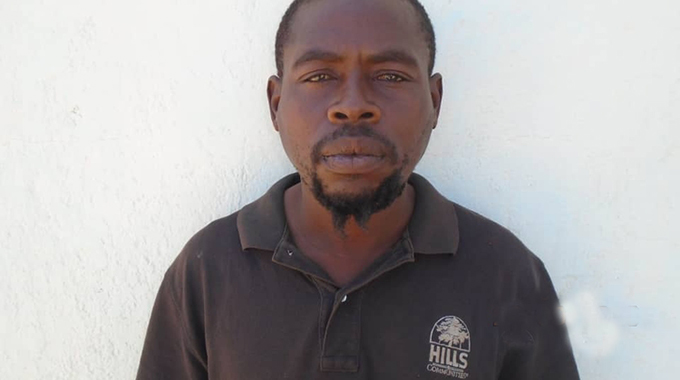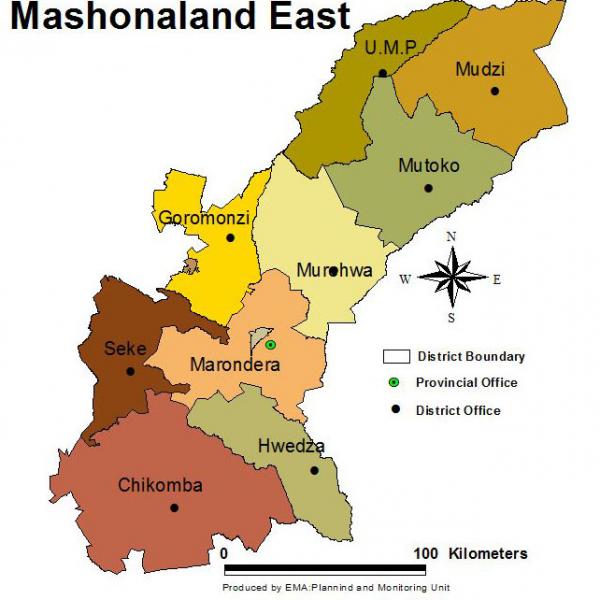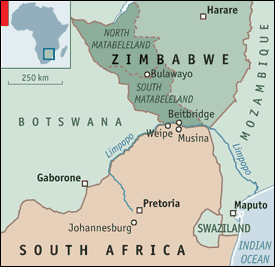The cruel ritualistic killing of 7-year old Tapiwa Makore in Zimbabwe inspired the president of this country, Emmerson Mnangagwa, to raise his voice against the killing of children for ritualistic purposes – because the gruesome murder of the young boy is not the only ritual killing case in his country. The police found evidence on the crime scene that more children had been murdered, possibly by the same suspect, Tafadzwa Shamba, a herdsman in the same village with the Makores.
Mnangagwa’s condemnation of ritual murders triggered the anger of an opposition politician, Paul Nyathi, who accused President Mnangagwa of hypocrisy. He accused Mnangagwa of several politically motivated murders. Moreover, while Mnangagwa was Minister of State for National Security – under then President Robert Mugabe – the 5th Brigade of the Zimbabwe National Army killed thousands of civilians in the Matabeleland region. These massacres, known as the Gukurahundi, lasted from 1983 to 1987, and resulted in an estimated 20,000 to 30,000 deaths.
Warning: the following articles contain graphic details of a cruel crime (webmaster FVDK).
Murehwa ritual killing: President decries evil act

Published: September 26, 2020
By: The Herald, Zimbabwe
President Mnangagwa yesterday condemned the killing of children for ritual purposes, saying the Government was concerned with all forms of threats and abuse to children and vowed to end violence against them.
The condemnation comes in the wake of the murder of a seven-year-old Murehwa boy, Tapiwa Makore, last week for ritual purposes, allegedly by a herder.
“I am disturbed by the loss of young children as a result of heinous and evil actions for rituals and witchcraft purposes. These cold-hearted acts of murder have no place in our country.
“The stakeholders in our criminal justice system must speedily and strongly deal with perpetrators so that this evil trend is expunged from our society,” said the President during a virtual Junior Cabinet meeting at State House yesterday.

Tapiwa was looking forward to resuming classes on November 9, and rejoining his peers at Nyamutumbu Primary School in Murehwa after a six-month hiatus.
Like millions of other pupils across the country, particularly his Grade One fellows, he was raring to go as the phased reopening of schools, which comes into effect on Monday, puts an end to their daily routine of playing house, horseplay and hopscotch, in-between errands as may be assigned by their parents.
The seven-year-old Tapiwa was his parents’ gift from God as was reflected in his name. With school lessons temporarily shelved owing to Covid-19, the bubbly boy, like the gift he was, often helped out his mother in tending to their vegetable garden.
In the morning of Thursday September 17, as she has always done, Tapiwa’s mother prepared food for him and set him off on the excursion to keep stray livestock away from their vegetable patch.
She and her husband were set to relieve him later in the afternoon.
However, fate had decided otherwise. It was set in the stars that they would never see their beloved son alive again, neither were they to bury him intact.
Unbeknown to them, the Makore family had set in motion a chain of events that would leave the serene community of Makore Village in Chief Mangwende’s domain of Murehwa District, dumbfounded, distressed and in deep mourning as a dark cloud of both grief and fear engulfed them.
Tapiwa’s story reads like a horror movie where death is traded with such abandon that the grisly ceases to be abnormal with the Grim Reaper, in his dark shrouds, hooded robe and scythe daring the living as they dare each other.
Bereft of words, the community fretfully tries to come to terms with what could have befallen their child; for in African societies, a child belongs to all. No one knows what he went through, and how the Grim Reaper tore through his fragile heart to “reap” his soul. All else pointed to ritual murder.
When Tapiwa’s parents got to the garden around 3pm, where they expected to see him as usual, they were confronted by his “last meal”, untouched, and his pair of shoes. Their boy was nowhere to be seen.
The parents’ enquiries on the whereabouts of their cherished son from other children, who were also keeping watch over their gardens revealed that Tapiwa had last been seen swimming in a pond close-by.
A visit to the pond, however, did not yield any result. Suddenly an air of fear filled them as they alerted other villagers of the missing boy, resulting in an immediate search of the area.
Nonetheless, the search, which was immediately conducted into the wee hours of the night and the morrow, yielded nothing; except more pain, anxiety and regret. By then, the Zimbabwe Republic Police (ZRP) had joined in the search.
The following day, Friday September 18, villagers reported that a neighbour had woken up to an enigmatic sight in his yard. He discovered his dog and puppies feasting on human organs. The body had its head, neck, both legs and arms hacked off.
National police spokesperson Assistant Commissioner Paul Nyathi said of the discovery then:
“The body of the boy was later discovered on September18, 2020, being eaten by dogs with the head, arms and legs chopped off for suspected ritual purposes.”
With the police leaving no stone unturned, one of the suspects, Tafadzwa Shamba was nabbed on kidnap and murder charges, while his two alleged accomplices are still at large.
Shamba, a herdsman in the same village with the Makores, and his co-conspirators ostensibly allegedly waylaid the boy from his family’s garden, took him to a mountain and detained him for the entire day.
The herdsman was promised US$1 500 for his part in the kidnap and subsequent gruesome murder.
However, before the envisaged windfall, Shamba’s luck ran out, as the blood-stained clothes he wore on the day he allegedly committed the crime betrayed him.
Naturally, the discovery of Tapiwa’s dismembered body, and one of the suspects’ subsequent arrest would have put closure to the sad story, as some questions could have been answered.
That was not to be. More human body parts were found strewn all over the place including a skull. However, this turned out not to be Tapiwa’s. This discovery with all the trappings of the macabre, led to more questions than answers.
Could there be a conspiracy to wipe out children from the area for ritual purposes? Has the area’s Grim Reaper made a date with the Makore villagers for a ransom as an appeasement for some ill-informed engagement from the past?
Villagers and the police unearthed more than they could chew. Among the skulls found, was one that looked so old it could not be linked to the victim’s; the other one was still blood-stained, but with the eyes gorged out and missing jawline. The chin and tongue were also missing.
Also discovered were a fire-singed child’s palm, a jaw with seven lower teeth, and other body pieces.
It is not clear how many other children could have met their fate in Tapiwa’s manner, which has left a cold chill running through the villagers’ spines.
Tapiwa’s relatives are convinced that the discovered fresh skull could not be their “son’s”.
Mr Isaac Makore (57), the deceased boy’s granduncle, said the newly discarded skull they chanced on was not his grandnephew’s, but that of a 12-year-old, yet to be identified child’s.
As a result of the uncertainty, Tapiwa is still to find rest, as burial arrangements have been put on hold pending further investigations.
“My grandnephew went missing, and we later discovered his torso with other organs, like the head, hands, and legs missing. We also discovered separate sets of teeth; and two separate skulls, one with lower teeth and the other one with upper teeth but without a tongue.
“Indications are that the other skull belongs to a yet to be identified older child, and not our ‘child’s’, Mr Makore said.
However, the boy’s privates were untouched.
Following Tapiwa’s grisly murder, and the unearthing of more mutilated body parts, villagers are now living in fear of death merchants who could be on the prowl in the area, seeking children’s hearts for ritual purposes.
Tapiwa’s uncle, Mr Simbarashe Makore (38), said it is believed that there could be many children, although not from their area, who could have been killed for ritual purposes, and had their bodies dumped in the proximity of their village.
“We are now living in fear. Our prayer is that the police apprehend the culprits and rid our area of this menace. Who knows, after our children, they may also come for us, their parents. How could someone kill a fellow human being in such cold blood just like that?” he bemoaned.
Ms Easther Makore (52), Tapiwa’s aunt concurred, saying the police should not leave any stone unturned and get to the bottom of the issue as it was mind-boggling that so many human organs could be discovered hard upon her nephew’s demise.
Mr Summer Murwira (78), a nephew to the Makore family, at whose homestead Tapiwa’s dismembered body was found, said it (body) was bloodless when it was discovered.
Another villager weighed in, saying: “I do not think the place the torso was found is where he was murdered, otherwise there would have been blood stains all over. This is a serious matter.
“We now fear for our children. No one even wants to attend to the gardens anymore, or guard them against roaming livestock since the incident occurred.” — (Additional reporting by Kingstone Mapupu — Kwayedza).
Source: Murehwa ritual killing: President decries evil act
President Mnangagwa’s remarks provoked an outcry from Paul Nyathi, a Zimbabwean opposition politician, which is interesting to note (webmaster FVDK).
“Mr President, All Murders Must Be Condemned And Stopped”

Published: September 26, 2020
By: ZimEye The Truth & The Future – Paul Nyathi
President Mnangagwa who himself is accused of several politically motivated murders and abductions yesterday condemned the killing of children for ritual purposes, saying the Government was concerned with all forms of threats and abuse to children and vowed to end violence against them.
The condemnation comes in the wake of the murder of a seven-year-old Murehwa boy, Tapiwa Makore, last week for ritual purposes, allegedly by a herder.
While it is noble for Mnangagwa to condemn the killings of innocent children the President himself has a history of killing which taints his otherwise noble call. Zimbabweans have through the years called on Mnangagwa to speak to the murders attributed to his authority and call for an end to the wanton killing of citizens for political purposes as he has done on the killing of children for ritual purposes.
“I am disturbed by the loss of young children as a result of heinous and evil actions for rituals and witchcraft purposes. These cold-hearted acts of murder have no place in our country.
“The stakeholders in our criminal justice system must speedily and strongly deal with perpetrators so that this evil trend is expunged from our society,” said Mnangagwa during a virtual Junior Cabinet meeting at State House on Friday.
While Mnangagwa was Minister of State for National Security, the 5th Brigade of the Zimbabwe National Army killed thousands of civilians in the Matabeleland region. These massacres, known as the Gukurahundi, lasted from 1983 to 1987, and resulted in an estimated 20,000 to 30,000 deaths.
More recently military officials – many behind his rise to power – have been accused of benefiting from the rich Marange diamond fields in eastern Zimbabwe, with reports of killings and human rights abuses there.
His ruthlessness, which it could be argued he learnt from his Rhodesian torturers, is said to have been seen again in 2008 when he reportedly masterminded Zanu-PF’s response to former President late Robert Mugabe losing the first round of the presidential election to long-time rival the late Morgan Tsvangirai.
The military and state security organisations unleashed a campaign of violence against opposition supporters, leaving hundreds dead and forcing thousands from their homes. Tsvangirai then pulled out of the second round and Mugabe was re-elected in a one man race.
On August 1 2018, the Zimbabwean army shot at protestors killing at least twelve and injuring many others. The government of Mnangagwa again denied involvement. A commission headed by Mohlante found the army responsible for the killings. The commission made recommendations and all were ignored by Mnangagwa’s military government. None of the recommendations were carried out.
In January 2019, more protestors were killed by the same army in cold blood. Scores of women were raped, some in front family members. A brazen Mnangagwa, would later demand to see graves of those killed and the women raped should come to him that he can believe that such atrocities took place at the hands of the army he directs. Many Zimbabweans were shocked and hurt by such reckless statements from a heartless president.
Source: Mr President, All Murders Must Be Condemned And Stopped



